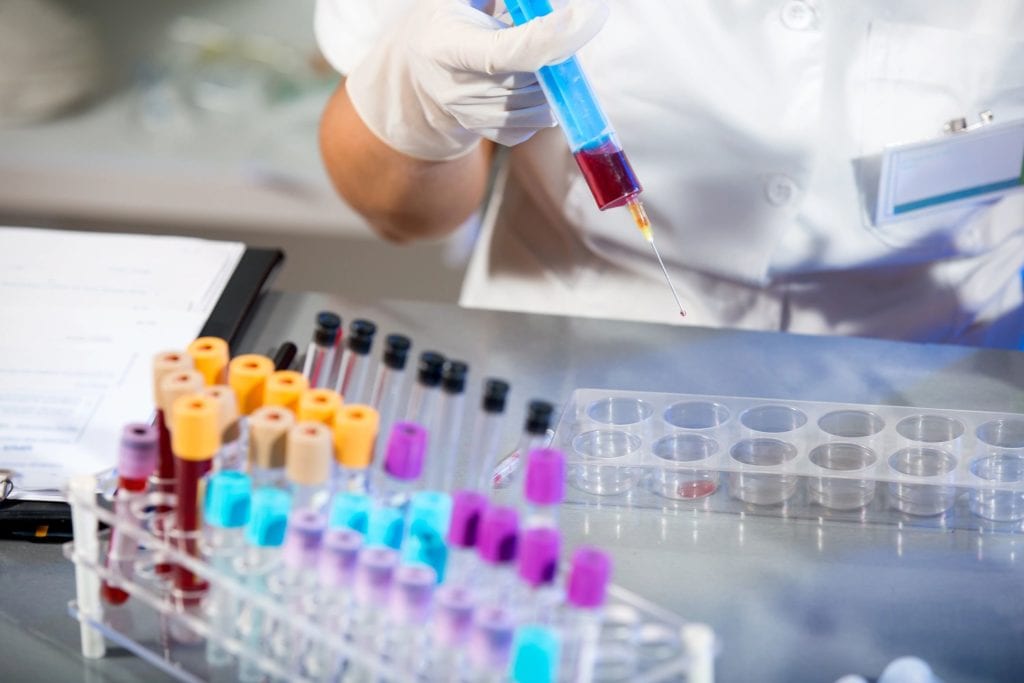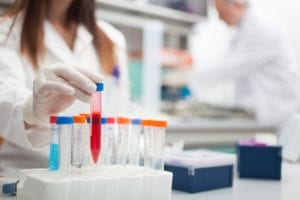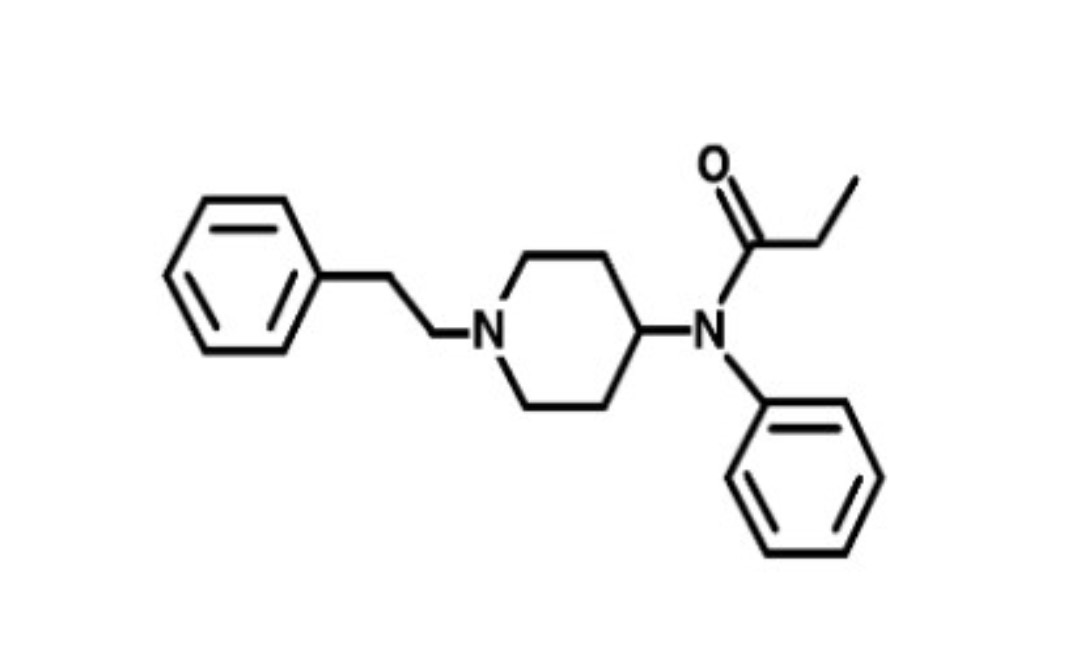Welcome to CTR Laboratory

our mission
CTR Labs is a full-service reference laboratory operating in Frederick, Maryland, specializing in Forensic Toxicology, Forensic Drug Chemistry, and Clinical Toxicology. CTR utilizes the most sophisticated, sensitive, and specific equipment and technology available for accurate and timely analysis. CTR offers flexible and customizable testing options and procedures overseen by a full time staff of highly trained toxicologists and technicians. We offer exceedingly thorough and comprehensive testing programs for a wide variety of forensic and clinical applications such as DUID testing, blood alcohol testing, drug chemistry analysis, post mortem testing, pain management compliance, drug abuse monitoring, neonatal withdrawal prevention programs, and therapeutic drug monitoring.

Forensic Toxicology Testing
CTR Laboratory is a fully accredited forensic toxicology testing laboratory. CTR offers Legal Blood Alcohol testing, DUID (Driving Under the Influence of Drugs) testing, post accident toxicology investigations, and comprehensive post mortem toxicology testing services and consultations. These services include the identification and quantitation of opioids, opiates, fentanyl, benzodiazepines, barbiturates, drugs of abuse, antidepressants, antipsychotics, stimulants, designer drugs, sleep medication, muscle relaxants, hallucinogens, and more. Please contact us to find out more.

Forensic Drug Chemistry
The Forensic Drug Chemistry Section performs analysis of seized evidence for the presence of controlled substances and other dangerous material. Evidence received for the analysis may include plant and other botanical material, pharmaceuticals, powders, blotter paper, mushrooms, illicit capsules, and drug paraphernalia. CTR Laboratory is fully accredited to provide forensically defensible and accurate drug chemistry analysis which are fully supported by sound and qualified expert testimony.

Urine Drug Confirmations
Urine drug confirmation testing is a essential part of all drug treatment programs. CTR offers an extensive testing panel which includes drugs of abuse, opiates, benzodiazepines, barbiturates, ethanol, ADHD drugs, stimulants, antidepressants, antipsychotics, and more. Choose from a full comprehensive confirmation panel or select the panels that best fit your treatment program. CTR uses liquid chromatography tandem mass spectrometry (LCMSMS) to ensure accurate identification of drugs and their metabolites at the molecular level. Our drug testing reports are clear and precise, and display past testing results which allows counselors to monitor their patient's progress real-time.

Blood Alcohol Testing
Blood ethanol concentration is measured for legal purposes by headspace gas chromatography with a flame-ionization-detector (HS-GC-FID).

Drug Screening
Enzyme Immunoassay (EIA) is a quick laboratory technique employed to screen samples for class specific compounds. A positive result must always be confirmed by a more specific and sensitive methodology.

Fentanyl and Analogues
CTR Laboratory offers a urine confirmation analysis for fentanyl, norfentanyl and 18 addition fentanyl analogues including 3-methylfentanyl, 4-fluorobutyryl fentanyl (4-FBF),4-fluoroisobutyryl fentanyl (4-FIBF),acetyl fentanyl, acetyl norfentanyl, acryl fentanyl, alfentanil,butyryl fentanyl, carfentanil, cyclopropyl fentanyl, despropionylfentanyl (ANPP), furanyl fentanyl, isobutyryl fentanyl, methoxyacetyl fentanyl, o/p-fluorofentanyl, sufentanil, tetrahydrofuranyl fentanyl, valeryl fentanyl.

Xylazine and Medetomidine
CTR Laboratory offers blood and urine analysis for the veterinary sedatives, xylazine and medetomidine. Xylazine, aka "Tranq" on the streets, is a powerful horse tranquilizer and is commonly mixed with fentanyl. Medetomidine is a dog tranquilizer and is now found in mixtures with xylazine and fentanyl. Both compounds are extremely dangerous and can lead to human tissue necrosis and death.

Designer Benzodiazepines
LC-MS/MS Confirmation and Quantitation of the following compounds: 7-Aminoclonazolam, Bromazepam, Clonazolam, Delorazepam, Deschloroetizolam, Estazolam, Etizolam, Flualprazolam, Flubromazolam, Flubromazepam, Meclonazepam, Nifoxipam, Phenazepam, and Pyrazolam.

Designer Drugs
CTR Laboratory has a specialized panel for the detection and identification of designer drugs such as Synthetic Cannabinoids and Novel Psychoactive Substances (NPS). Our laboratory and management team have lead the industry in the development of these difficult assays for the military drug testing program. Our current laboratory team has recently published a quick reference guide to the isolation and identification of multiple synthetic drugs.
How does it work
Drug Screening
Screening techniques are presumptive tests used to identify which samples may possibly contain a drug or drug metabolite. Screening tests are less precise than confirmatory test but are important in identifying which specimens need a confirmatory test. Some common screening tests for drug chemistry and toxicology include chemical color test, immunoassay (IA), thin layer chromatography (TLC), gas chromatograph (GC), liquid chromatography (LC), microscopic analysis, and ultraviolet spectroscopy.
Drug Confirmations
Drug confirmations and quantitations are performed by liquid chromatography tandem mass spectrometry (LC-MS/MS). Prepared urine specimens are injected into the liquid chromatograph (LC) where each drug and metabolite is separated based on their specific chemical properties and structures. The specific time each compound spends in the liquid chromatograph is called the retention time. Each separated compound then enters the tandem mass spectrometer where the parent compound is isolated and fragmented. Each drug and/or metabolite will produce fragments specific to their chemical structure. Unknown compounds are identified by their relative retention times and the unique fragmentation pattern. By analyzing a calibration curve of known compounds and controls, unknown compounds can be positively identified and their concentration in the urine can be quantified.
Who are we
CTR Labs was founded by practicing toxicologists with decades of real world experience. For the past thirty five years we have been providing consultative reports to some of the biggest and most advanced medical examiner systems in the world. In addition, our founders have developed new and innovative methods of the isolation, identification and quantitation of medications, their metabolites and designer compounds for the United States Military.
Barry Levine ph.d
Barry Levine Ph.D was the Chief Toxicologist, Office of the Chief Medical Examiner, for the State of Maryland from 1992 to 2012 and currently holds a position of consultant for the state. He was also the Director of the Forensic Toxicology Laboratory for the Armed Forces Medical Examiner System from 1989 to 2014. He is an adjunct professor in the Forensic Sciences Department at Stevenson University. Dr. Levine is a fellow of the American Board of Forensic Toxicology and a Diplomat of the American Board of Clinical Chemistry - Toxicological Chemistry. He edited the book Principles of Forensic Toxicology which is now in its 5th edition.
Dr. Levine is the Laboratory Director for Chesapeake Toxicology Resources.
Joe Magluilo
A co-founder of Chesapeake Toxicology Resources, Joe brings over thirty six years of experience in the field of forensic toxicology. As a graduate of the State University of New York as well as Southern Illinois University he has managed, planned and implemented the development of laboratories for the past three decades.
Joe was most recently the Chief of Laboratory Operations for the Armed Forces Medical Examiner System (AFMES). He was the senior government contractor responsible for the daily operations and final reporting of all types of toxicology cases. His prime focus is that of a manager and practicing toxicologist with emphasis on the extraction and identification of drugs and their metabolites in a multitude of biological matrices. For the better part of thirty years, most of this identification was accomplished by gas chromatography/mass spectroscopy. He also served as a senior data review official for the AFMES and was responsible for the quality of all final reports. He and his co-founders of Chesapeake Toxicology have published many peer reviewed articles in the field of forensic toxicology. He was also involved in the inspection and compliance process for the Department of Defense and has been a laboratory inspector for many DoD inspections.
Shawn P Vorce
A co-founder of Chesapeake Toxicology Resources, Shawn brings twenty four years of experience in forensic chemistry and forensic toxicology. He graduated with a Bachelor of Science degree in forensic chemistry from West Chester University, PA. He has trained at the DEA Special Testing Laboratory as a forensic chemist and is a Board Certified Member of the American Board of Criminalistics (ABC-GKE).
Shawn was previously employed as a government contractor for the Armed Forces Medical Examiner System (AFMES). He served as the Confirmation/Quantitation Supervisor in the Division of Forensic Toxicology where he was responsible for the day to day operation of this section which includes: casework quantitations, GC/MS, LC/MS, and LC/MS/MS method development, special testing, and research support. He served as a subject matter expert to the military drug testing community as well as the AFMES. He was assigned the position of lead researcher on analytical method development projects. He implemented research and method development ideas post completion and serves as an expert in the area of Forensic Toxicology for AFMES and for the Department of Defense (DoD) Drug Testing Program.
Justin Holler
A co-founder of Chesapeake Toxicology Resources. With over fifteen years of experience in the laboratory with primary focus in forensic toxicology. He graduated with a Bachelor of Science degree in chemistry and a minor in mathematics from Washington College, a small liberal arts school on Maryland’s eastern shore. He also obtained a Master of Science from the University of Florida with a focus on forensic toxicology.
Justin was employed as a government contractor with the Armed Forces Medical Examiner System. He was the lead toxicologist in charge of the Department of Defense Quality Assurance Laboratory within the Division of Forensic Toxicology. The primary focus for the DODQA laboratory is to provide external oversight for the DoD drug testing program which tests over five million specimens per year. Justin has extensive experience at the laboratory bench performing analytical chemistry and toxicological experiments. He has spent many years on method development and validation to include the new wave of designer drugs (synthetic cannabinoids commonly referred to as spice and designer cathinones commonly referred to as bath salts). Justin is well versed in QA and oversight of laboratories. He was involved in the certification process of the laboratories as well as assistance in the overall QA program. Justin served as both an inspector and lead inspector for the Department of Defense.



